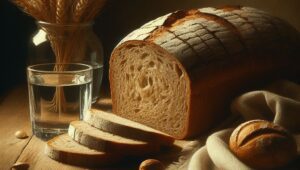Catholic Teaching on Fasting
Fasting in the Catholic Church is a practice of penance and prayer that consists of voluntarily giving up some food or drink for a certain time, in order to unite more closely with God and offer him our sacrifice for some intention. The Catholic Church invites us to fast especially in the liturgical times of Lent and Advent, as well as on some special days, such as Ash Wednesday and Good Friday.
What meaning does fasting have for Catholics?
Fasting helps us purify our body and mind, master our passions, and elevate our spirit toward the things of God.
Fasting makes us in solidarity with the poor and needy, who suffer from shortages of food and other goods.
Fasting makes us participate in the passion of Christ, who gave himself for us until death.
Fasting prepares us for the celebration of the Eucharist, where we receive the Body and Blood of the Lord.

How should fasting be practiced in the Catholic Church?
The Catholic Church establishes minimum standards for fasting, which are as follows:
- Fasting is obligatory for the faithful who have turned 18 and until they turn 60.
- Fasting consists of eating only one large meal a day. Two other lighter meals can be eaten, as long as they do not add up to another full meal.
- The obligatory fasting days are Ash Wednesday and Good Friday.
However, these rules do not exhaust the meaning of fasting, which must be an internal attitude and not just an external observance. For this reason, fasting can be extended to other days or other forms of renunciation, according to the criteria of each person and the guidance of the confessor or spiritual director. The important thing is that fasting is an expression of love for God and neighbor, and not a reason for pride or vanity.

What relationship does fasting have with abstinence?
Abstinence is another form of penance that consists of depriving oneself of the consumption of meat or other food, drink or form of entertainment according to the determinations of the competent ecclesiastical authority.
In the Gospel of Matthew it is written: “He said in reply, It is written: One does not live by bread alone, but by every word that comes forth from the mouth of God.” (Mt 4,4).
Abstinence helps us mortify our appetite and be freer to follow Christ.
Fasting and abstinence are two means that the Catholic Church proposes to us to grow in our spiritual life and to collaborate with the redemptive work of Christ. They are not ends in themselves, but instruments to bring us closer to God and our brothers. Therefore, we must practice them with faith, with humility and with joy, knowing that God sees in secret and will reward us «So that you may not appear to others to be fasting, except to your Father who is hidden. And your Father who sees what is hidden will repay you.” (Mt 6,18).






